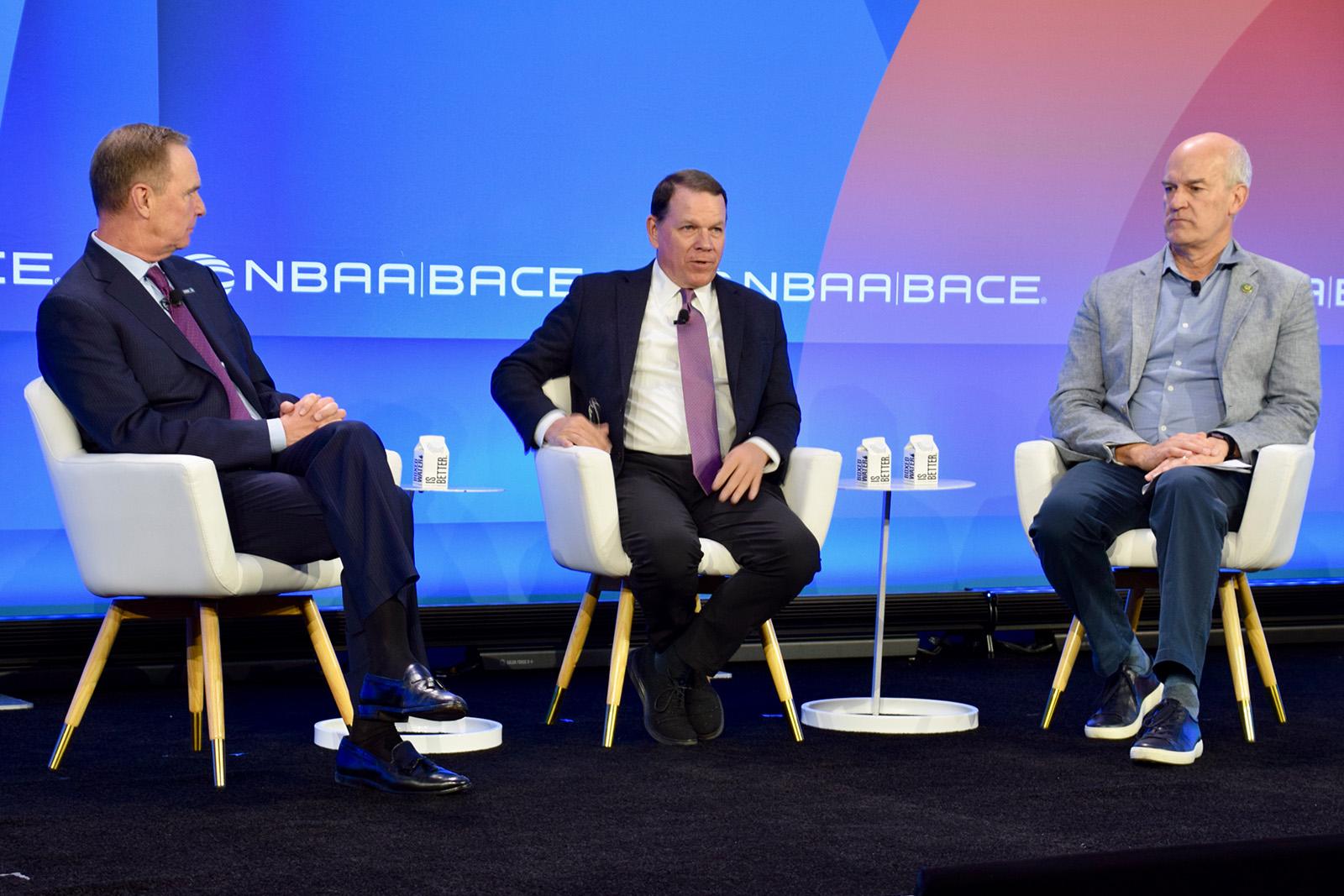
NBAA President and CEO Ed Bolen, left, moderates a discussion with U.S. Reps. Sam Graves, center, and Rick Larsen.
LAS VEGAS—The leaders of the U.S. House Transportation and Infrastructure Committee say they are confident that gains made in the bipartisan FAA reauthorization bill passed earlier this year will survive the coming change in presidential administrations.
Speaking Oct. 21 at NBAA-BACE here, U.S. Rep. Rick Larsen (D-Wash.), the committee’s ranking member, noted the strong support for the bipartisan reauthorization bill, which passed 387-26 in the House and 88-4 in the Senate. President Joe Biden signed the legislation into law in May; it funds the FAA through fiscal 2028 with $105 billion in appropriations Congress will have to approve.
The vote “really sends a bipartisan, bicameral message about the bill we passed,” said Larsen. “Regardless of which administration comes in, they’re not going to be able to say, ‘You didn’t mean to do that.’ We meant to do this. I think we’ve got a good basis with the next administration to continue to move forward on a lot of things.”
U.S. Rep. Sam Graves (R-Mo.), the House Transportation Committee chairman, said he is most proud that the FAA legislation for the first time includes a title, or chapter, focused on general aviation. Graves, who has been mentioned as a potential Transportation Secretary should former President Donald Trump win back the White House, also emphasized the increased level of funding for the Airport Improvement Program (AIP) contained in the bill.
“We were able to increase the AIP to $4 billion a year,” Graves said. “It’s been stagnant for a long time at about $3.35 [billion]. We were also able to say that 70% of that is going to go to small and medium-sized airports, which means a billion dollars in new money for our small and medium-sized airports. This is huge.”
Graves added: “There are so many good things in this bill I can’t begin to go through all of them but there are some things that stand out and AIP is going to be robust.”
Larsen cautioned, however, that decisions still have to be made about appropriating funds under the 2021 Bipartisan Infrastructure Law, which authorized $1.3 trillion in spending on roads, bridges, rail and airports.
Trump and Vice President Kamala Harris, the major-party presidential candidates, have not addressed transportation, Larsen said. “Those decisions haven’t been made and neither campaign has been talking about it,” he said. “We’re going to have to have that discussion next year.”





